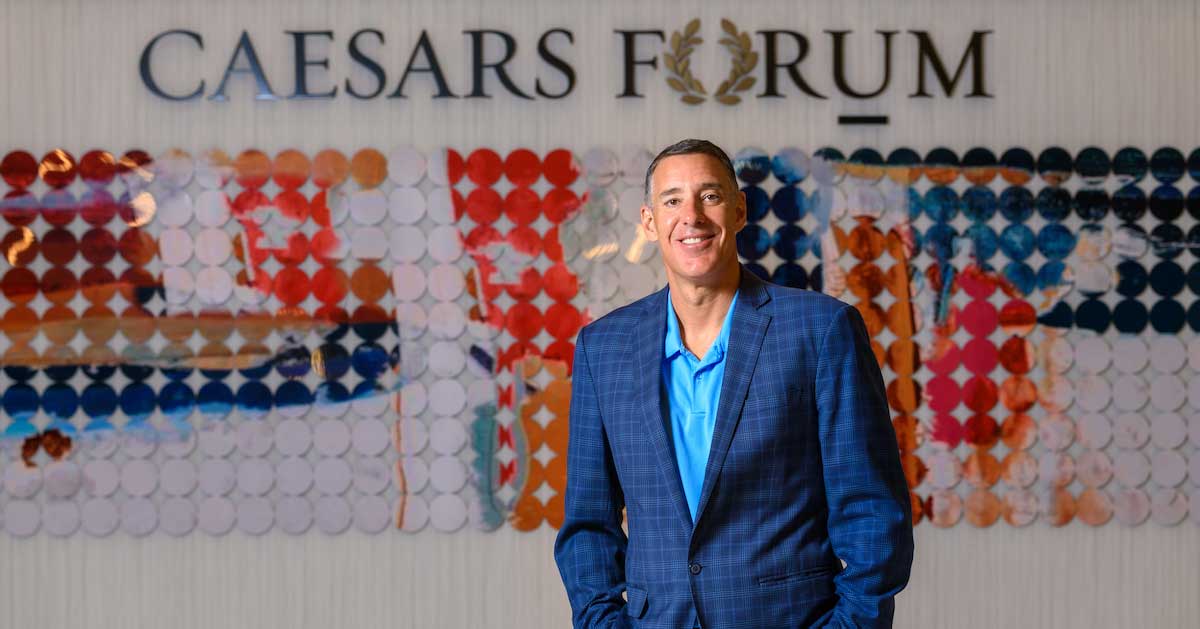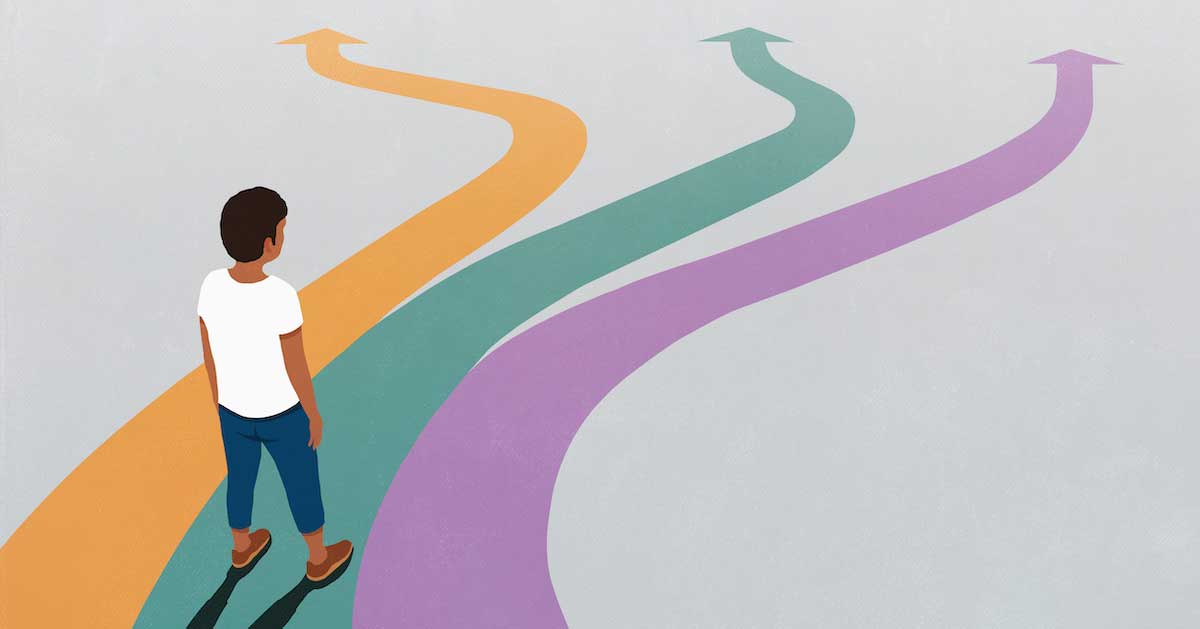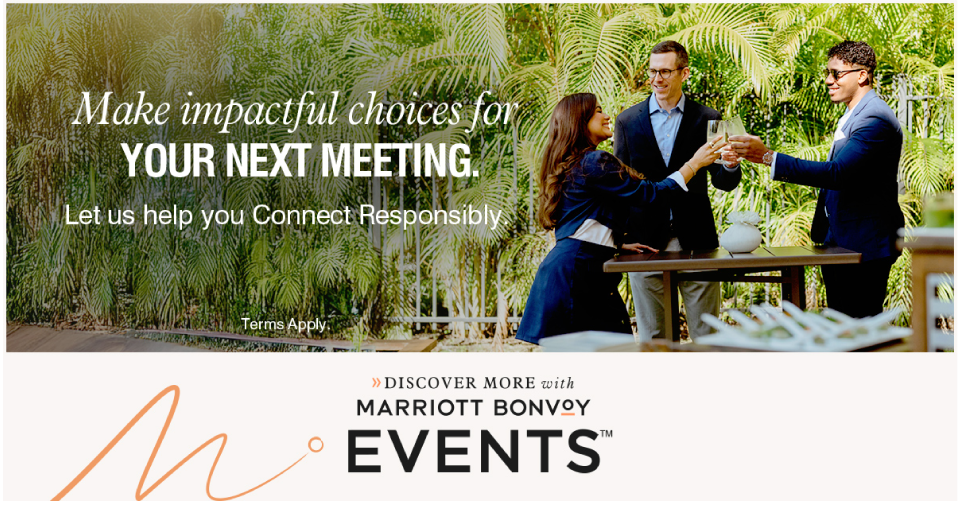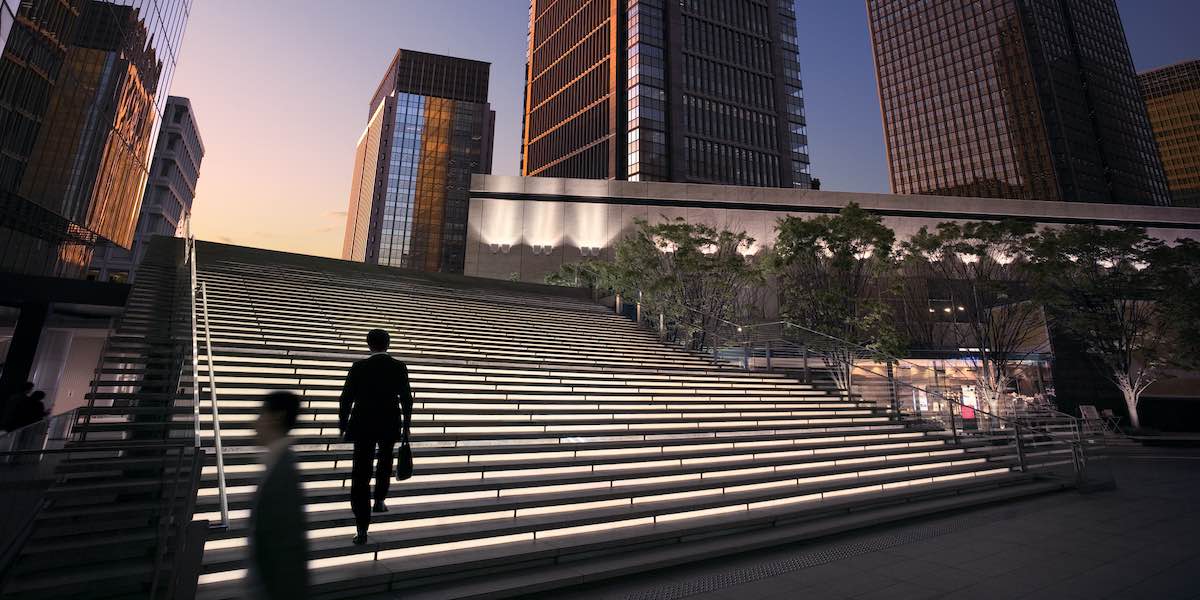Michael Massari, chief sales officer at Caesars Entertainment, will serve as co-chair of the Meetings Mean Business (MMB) coalition in 2021 along with Fred Dixon, president and CEO of NYC & Company. They will work to advance the coalition’s mission of promoting and protecting the enduring value that business meetings, trade shows, incentive travel, exhibitions, conferences and conventions bring to people, businesses and the economy.
Massari has been with Caesars Entertainment for more than 20 years, serving in numerous capacities. He just concluded 10 years of service on MPI’s International Board of Directors.
The MMB coalition, established by the U.S. Travel Association in 2009, is comprised of organizations from across the meetings and travel communities.
Why did you want to become co-chair of MMB?
I decided to become the co-chair this year because it’s a critical time in the industry and our industry needs volunteer leaders now more than it ever has. While I was a participant of MMB all those years, I hadn’t taken a leadership role and felt it was time to walk the walk, since the industry needs all of us.
What are among the top priorities for MMB?
The only priority is to gain permission to operate. We need to gain legislative permission to execute great meetings and events. The challenge, from my perspective, is I just don’t think we’ve been given a level playing field. We’re not asking for a free pass in the meeting and event industry by any means. We’re just asking to operate under the same rules and regulations that other industries can operate at—for example, hotels and restaurants can operate at [a much higher] percent occupancy.
How much will MMB spend on advocacy in 2021?
Not enough. We can leverage all our resources—whether it be co-op advertising, telephone calls, email, direct mail—and add resources such as database work, columns, etc. Maybe [U.S. Travel Senior Vice President] Nan Marchand Beauvois having a monthly column, or Fred and I having monthly columns will create more exposure; low cost and high value.
How well do local leaders understand our industry?
Not well enough. It’s incumbent upon us to make crystal clear the breadth of our industry’s impact. This is literally work that never ends. Leadership changes and it’s up to us to educate local government. This is work that we’re going to have to focus on for the length of our existence.
Why are face-to-face meetings so important to you?
Face-to-face meetings, I learned as a young man, are the best way to communicate, to share information, to accomplish whatever it is you want. I realized early on that if I wanted a yes answer, I should go see somebody in person. That has evolved into our company credo—if it’s not important, send an email; if it’s important, pick up the phone; if it’s mission critical, go see somebody. It’s a lot harder to say no to someone sitting in front of you than it is to respond by an email that says, “Sorry I can’t help you.”
How can meeting professionals become better advocates?
Join an organization. If you’re already in an organization, become an advocate. Be active outside the industry to advocate as well. People may struggle with what being an advocate means. It’s an organic process. Be involved inside our industry and outside our industry. Take the time to explain what the meetings business is all about. One of the best things about our industry is also our Achilles heel. We have many people across so many different companies, often small businesses, that make up our great industry. It’s hard to get everyone active and engaged. We just need more people to be involved.
How can we be more effective advocates?
Traditionally as suppliers, we’ve been involved in organizations primarily as a growth tool and for professional networking resulting in being active, predominantly in our industry only. That misses part of the point which is to be involved as an advocate of our industry by making sure people outside know what we do, how we do it and the value it brings to the community.
Look at me, for example. I’ve been involved at a senior level with national meetings organizations for the last 20 years. What COVID-19 taught me is that I haven’t been as involved in a local way; such as the Las Vegas Chamber of Commerce or Nevada Resort Association. These are areas where I haven’t been involved—nobody from our team has been involved. It’s about having a seat at the table and a voice when decisions are being made. If we were involved, maybe we would have had a say on the decision of being capped at meetings of 50 people where other industries can operate at 50 percent. I realize how important this is now and am strongly suggesting that my team engage in these local organizations, and I would like everyone in the industry to do so as well. We cannot continue to be the invisible industry.
What kind of support do we need from Congress?
We just need them to understand what the meeting industry is all about. In the short run, we need permission to operate. We need to convince our legislatures that we can do this safely just like so many other businesses. MMB and everyone else is out there working on this now. We want people to understand what the meeting business is and how it operates. In the short run, we need permission to operate.
What’s been MMB’s most important achievement?
Simply our ability to communicate to the broader world with a single voice is an absolute accomplishment. It’s something I talked about in our industry from the time I entered it until the time we were able to do this in the mid 2000s.
What are other industries that successfully advocate?
Go down through the list of industries that get called out for help in Congressional and Senate bills. That’s the lists of industries we’d like to emulate. The challenge is that these industries are centered around a few major players—airline, automobile, pharmaceutical. We need to figure out how to fund ourselves. When neighbors ask me what I do for a living, sometimes I’ll say hotel sales, and they ask, “What hotels have you sold?” Or I’ll say, “meetings and events,” and they’re like, “Oh, you go to a lot of these meetings?” That’s just a semi-humorous example of the difficulty it is for those who are not in our industry to understand what we do. I don’t think that pharmacists have that problem. We have some fundamental challenges we have to accept—in our industry seven people may get laid off from one company, 12 from another, adding up to thousands. When the automotive industry does layoffs, they do 30,000 layoffs, and they get a much bigger reaction from the media.
How long will COVID-19 impact our industry?
Longer than I wish. For good and bad reasons, this will impact our industry for a long time. COVID-19 has been the most impactful and disruptive situation since a world war. An example of good for our industry is that everyone in the world now understands how critical gathering together face to face is. Less people understood that in February (pre-COVID). That’s a positive for society and a positive for our industry.
What will the long-lasting impacts be?
You now have a whole generation of people who know precisely why they gather face to face verses a Zoom call or videoconference. That’s the longest-term, biggest impact, and that’s a positive one. The negative ones are clear: the employment situation, the change in people’s trajectories and lives.
Do companies that hold meetings understand the value of meetings now?
No question. It was almost impossible to be a successful executive without leveraging the power of face-to-face interactions pre-COVID. The better you are able to understand the benefit of face-to-face, the better executive you are. Anyone who didn’t understand that in February understands it in December. A Zoom call is not a replacement. A Zoom call is an enhancement to the phone, no more than a CD is a replacement for going to a concert.
What would you say is the most important lesson you’ve learned as a leader?
To understand why you are you doing what you’re doing. Thinking about your purpose and being introspective is an important part of leadership. I like to help people and see them grow, see them do amazing things and accomplish their goals. Leadership is not about growing businesses profitability; it’s about helping others achieve what they want to achieve.
What inspires you about the meeting and event industry?
The magic when people gather. Face to face is magical. It’s about the energy that’s created and the spark.







